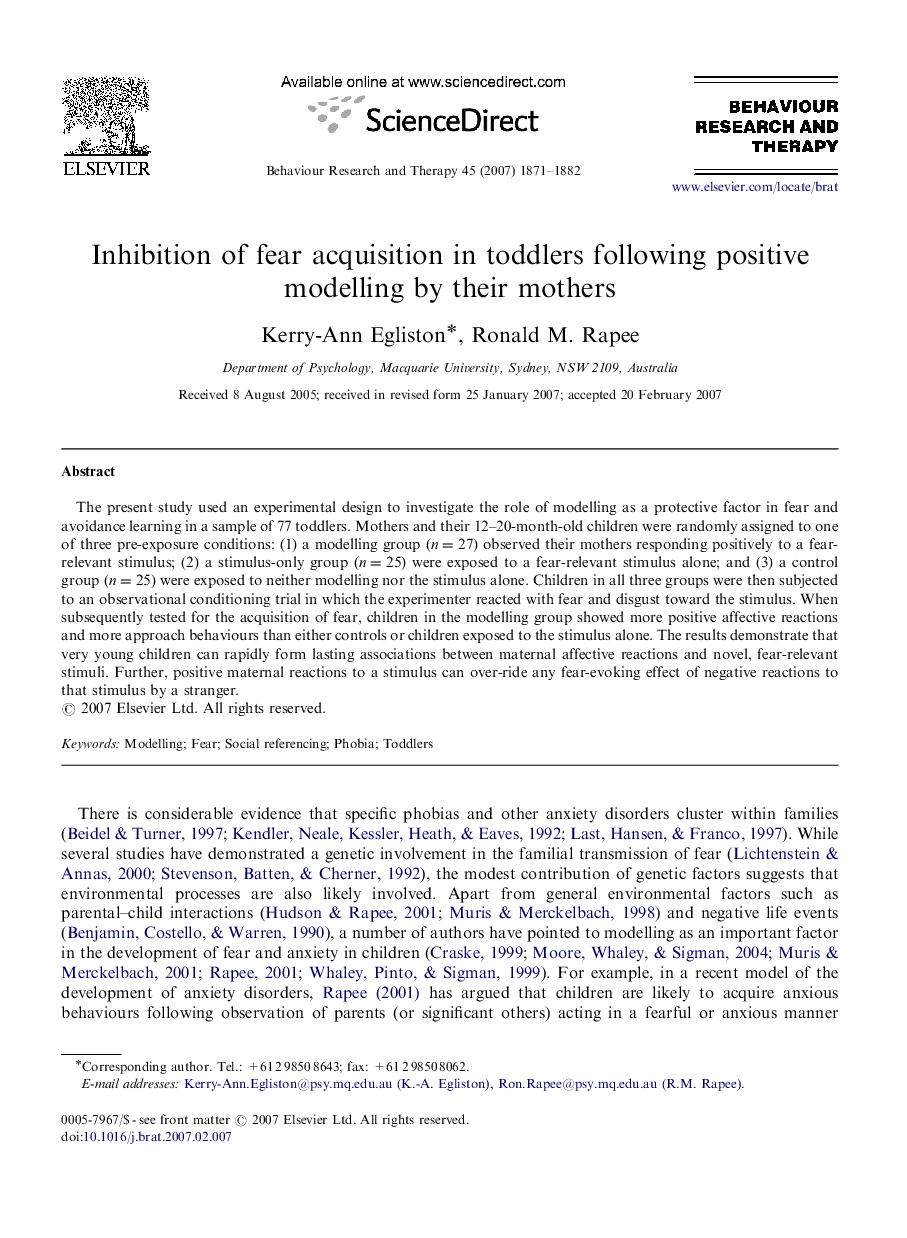| Article ID | Journal | Published Year | Pages | File Type |
|---|---|---|---|---|
| 10444948 | Behaviour Research and Therapy | 2007 | 12 Pages |
Abstract
The present study used an experimental design to investigate the role of modelling as a protective factor in fear and avoidance learning in a sample of 77 toddlers. Mothers and their 12-20-month-old children were randomly assigned to one of three pre-exposure conditions: (1) a modelling group (n=27) observed their mothers responding positively to a fear-relevant stimulus; (2) a stimulus-only group (n=25) were exposed to a fear-relevant stimulus alone; and (3) a control group (n=25) were exposed to neither modelling nor the stimulus alone. Children in all three groups were then subjected to an observational conditioning trial in which the experimenter reacted with fear and disgust toward the stimulus. When subsequently tested for the acquisition of fear, children in the modelling group showed more positive affective reactions and more approach behaviours than either controls or children exposed to the stimulus alone. The results demonstrate that very young children can rapidly form lasting associations between maternal affective reactions and novel, fear-relevant stimuli. Further, positive maternal reactions to a stimulus can over-ride any fear-evoking effect of negative reactions to that stimulus by a stranger.
Related Topics
Health Sciences
Medicine and Dentistry
Psychiatry and Mental Health
Authors
Kerry-Ann Egliston, Ronald M. Rapee,
